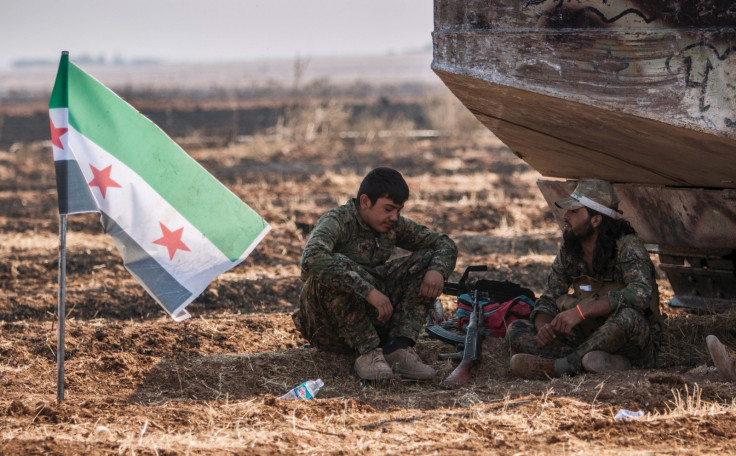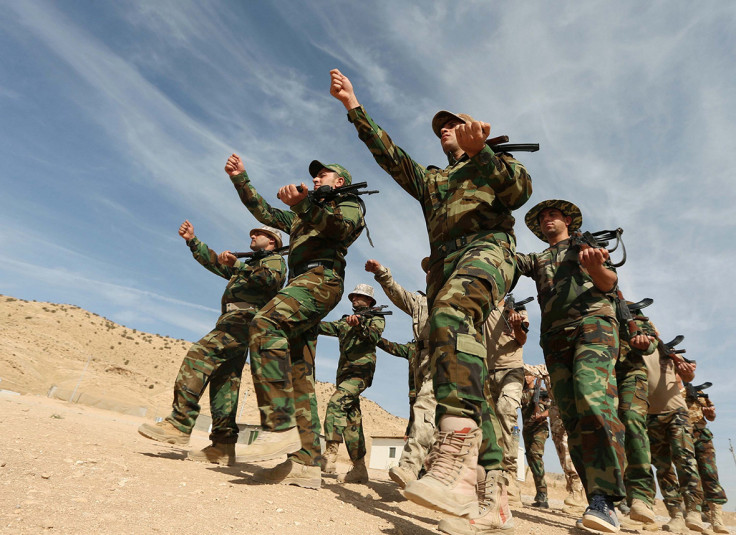US-led coalition plans assault on Raqqa to leave Isis with nowhere to go
The operations to retake the Isis-controlled city will begin while the Islamists are under attack in Mosul.
Operations to retake Raqqa, the Islamic State (Isis) stronghold in Syria, will begin while Iraqi forces continue their advance to liberate Isis-held Mosul, leaving the Islamist fighters with nowhere to go.
Lieutenant General Stephen Townsend, the commander of Combined Joint Task Force-Operation Inherent Resolve, described the plans during a press conference in Washington on Wednesday (26 October). "We want to pressure Raqqa so that the enemy doesn't have a convenient place to go," he said, speaking from Baghdad. He added that intelligence reports indicating IS is planning new attacks from Raqqa increase the sense of urgency for the operation.
Fighting to liberate Raqqa in Syria will require a different strategy than the combat operations in Mosul, where the Iraqi army is involved in the frontlines with support from the Kurdish Peshmerga forces and US-led international coalition, including NATO members such as the UK and Turkey.
The forces participating in the Raqqa operation will involve the Syrian Democratic Forces, SDF, which include the Kurdish YPG and the Syrian Arab Corps. The coalition is planning to recruit, equip and train more local forces from the Raqqa area for the operation.
The coalition's involvement will be lighter in Syria than it is in Iraq. "We'll have fewer coalition troops there, less combat capability there. We'll have to apply coalition combat support in a different way than we're doing here in Iraq," Townsend said.

In 2013 Raqqa was the first major city to be freed from President Bashar al-Assad's forces, but the city then fell into Isis' hands in January 2014. The Islamic State has made Raqqa the capital of their territory in Syria, committing atrocities against the civilian population.
The involvement of the Russian forces supporting Assad's army, and the Turkish government opposing the involvement of Kurdish fighters, all the while the civil war rages on, complicate the planning of the offensive.
Townsend seemed confident the coalition was close to agreeing on a strategy, and he said it welcomes anyone who wants to join in the fight against Isis. "We'll use whoever wants to go do that, fight Daesh in Raqqa, that's a tough place, probably won't be a very long list. And I would imagine Syria probably isn't thrilled with any of us there doing that. But it's necessary," he said.
He refused to specify a timeline as not to give the enemy too much information, but he mentioned the offensive will start "soon". Reports from US and UK defense chiefs on 26 October talk about a matter of "weeks".

But due to the environment in Syria, the battle for Raqqa, as soon as that may start, is expected to be tougher and a longer than that to liberate Mosul, where the Iraqi forces have progressed rapidly, aided by the coalition's robust military support.
"This relentless campaign of strikes has removed hundreds of fighters, weapons, and key leaders from the battlefield in front of the Iraqi advance," Townsend said.
What worries him about Iraq now, he said, is what happens next in Mosul: "About what keeps me up at night, it's got to do with the kind of the acceptance of this liberation and the follow-on political situation solution that's in place in Mosul after the liberation."
© Copyright IBTimes 2025. All rights reserved.






















